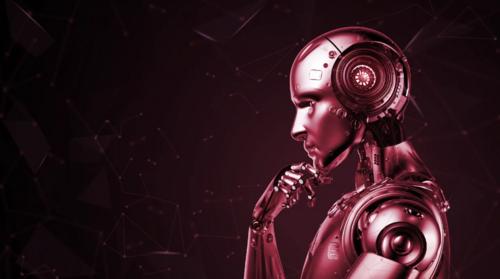
By Jason Nelson

image: shutterstock
While digital selfies created by the artificial intelligence app Lensa have taken over social feeds and profile pictures, text-based artificial intelligence platform ChatGPT is taking Crypto Twitter by storm.
Launched in November by OpenAI, ChatGPT has seen a flood of interest due to its surprisingly coherent and in-depth responses to questions ranging from how to exploit a smart contract to how the world will end.
ChatGPT works by entering a question or statement into a text box. The A.I. tool will respond with a series of responses based on the query.

But while the app has drawn considerable attention, that popularity has also caused ChatGPT to experience a service slowdown and even a crash. A message on the website at the time of writing reads: "We're experiencing exceptionally high demand. Please hang tight as we work on scaling our systems."
OpenAI is a San Francisco-based company founded by Elon Musk, Sam Altman, Ilya Sutskever, Greg Brockman, Wojciech Zaremba, and John Schulman in 2015. The company says its mission is to ensure that artificial intelligence benefits all humanity.
Artificial intelligence has also been a science fiction mainstay and has been featured in the works of Isaac Asimov, William Gibson, Neal Stephenson, and many more, and has been embedded in the global psyche for generations. For many, it's a concept easier to grasp than blockchain and cryptocurrencies and shows more real-world applications.
Many crypto skeptics are expressing relief that there's something new to talk about other than monkey JPEGs and rug pulls.
Bringing 'Snow Crash' to Life: Neal Stephenson Talks to Decrypt at Consensus
Neal Stephenson, who coined the term "metaverse" in his seminal novel "Snow Crash," speaks to Decrypt's Jason Nelson along with Bitcoin Foundation founder Peter Vessenes, about the new "free metaverse" they're co-launching, Lamina1.
However, the question of how A.I. can threaten the blockchain has existed for some time.
The ability to crack smart contracts and blockchains has been a significant concern in the cryptocurrency industry since the very beginning. While quantum supercomputers may be years away, artificial intelligence has been in development, thanks to computer pioneers like Alan Turing, since the 1940s and is already on the market.
But while some see a threat, the developers of ChatGPT see a future where artificial intelligence can benefit the developers of smart contracts.
This can help to improve the efficiency and trustworthiness of contract execution,” tweeted ChatGPT developer Issac Py. “Smart contract + A.I. can also be used to automate the evaluation and negotiation of contract terms.”
Some in the blockchain space believe tools as powerful as ChatGPT should be in the hands of a DAO instead of a single company.
A decentralized autonomous organization, better known as a DAO, is an organizational structure where control is spread out rather than hierarchical. DAOs use smart contracts on a blockchain, with participants using governance tokens to vote on proposed actions.
Launching a DAO became popular in late 2021 as groups like Constitution DAO and Ukraine DAO formed to raise money for different causes. But, how decentralized and autonomous these organizations actually are has raised questions about their viability as long-term organizations.
That’s something that developers think artificial intelligence can help fix.
Others, including digital artists already using artificial intelligence tools like OpenAI’s Dall-E program to create their work, are poking fun at the newfound popularity of ChatGPT.
Whatever the future holds for artificial intelligence, it is probably a good idea to start saying please and thank you to these not-yet-sentient applications. Just in case.
